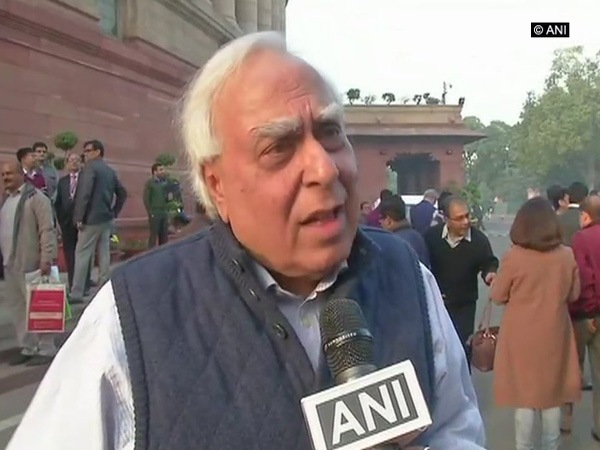\New Delhi [India]: Congress leader Kapil Sibal on Wednesday said the party supported the proposed triple talaq bill, but opposed it only when it came to the criminalisation part.
“We are for this bill, as the Supreme Court deemed the practice as unconstitutional and that is what the bill says, and we agree with it. But when it comes to criminalisation, neither the minority nor the majority judgement [of the Supreme Court] mentioned it, which is what we opposed,” Kapil Sibal told ANI here.
“One will realise the motive behind the bill, especially the criminalisation aspect of the bill, if he goes into the detail,” he added.
A united Opposition, led by the Congress party, earlier in the day, took on the Centre over the bill in the Rajya Sabha.
A pandemonium broke out in the Upper House soon after the bill was tabled by Union Law Minister Ravi Shankar Prasad.
Congress leader Anand Sharma moved the notice to refer the bill to a select committee of Rajya Sabha. He even proposed the names of committee members following which the Upper House witnessed a stormy session.
The government had, on Tuesday, shot down the Opposition’s demand that the triple talaq bill be sent to a select committee of the Rajya Sabha. It had, however, said it might be open to accepting some of the amendments to the bill, as suggested by the Opposition.
The rebuttal led to the Rajya Sabha getting adjourned till 11 am tomorrow, following which Ravi Shankar Prasad accused the Congress party of resorting to double standard.
The Muslim Women (Protection of Rights on Marriage) Bill 2017 seeks to criminalise instant divorce, triple talaq.
The bill was passed in the Lok Sabha with most of the leading parties in the Opposition, including the Congress, voting in favour, but with caveats.
The bill, if enacted, will make triple talaq a criminal offence. It proposes a three-year jail term for a Muslim man who divorces his wife in any form of spoken, written or by electronic means such as email, SMS, and WhatsApp. (ANI)

